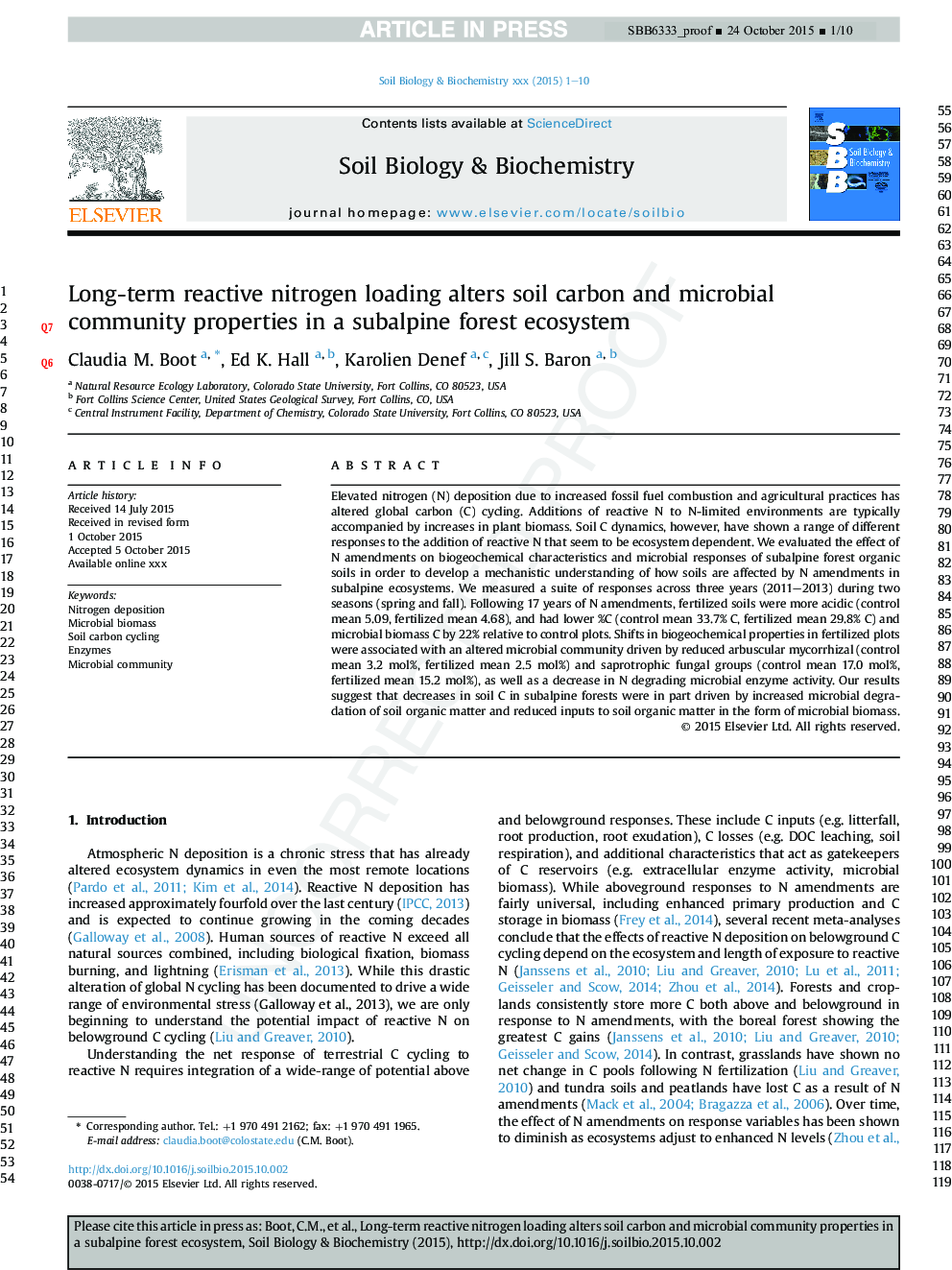| Article ID | Journal | Published Year | Pages | File Type |
|---|---|---|---|---|
| 8363689 | Soil Biology and Biochemistry | 2016 | 10 Pages |
Abstract
Elevated nitrogen (N) deposition due to increased fossil fuel combustion and agricultural practices has altered global carbon (C) cycling. Additions of reactive N to N-limited environments are typically accompanied by increases in plant biomass. Soil C dynamics, however, have shown a range of different responses to the addition of reactive N that seem to be ecosystem dependent. We evaluated the effect of N amendments on biogeochemical characteristics and microbial responses of subalpine forest organic soils in order to develop a mechanistic understanding of how soils are affected by N amendments in subalpine ecosystems. We measured a suite of responses across three years (2011-2013) during two seasons (spring and fall). Following 17 years of N amendments, fertilized soils were more acidic (control mean 5.09, fertilized mean 4.68), and had lower %C (control mean 33.7% C, fertilized mean 29.8% C) and microbial biomass C by 22% relative to control plots. Shifts in biogeochemical properties in fertilized plots were associated with an altered microbial community driven by reduced arbuscular mycorrhizal (control mean 3.2Â mol%, fertilized mean 2.5Â mol%) and saprotrophic fungal groups (control mean 17.0Â mol%, fertilized mean 15.2Â mol%), as well as a decrease in N degrading microbial enzyme activity. Our results suggest that decreases in soil C in subalpine forests were in part driven by increased microbial degradation of soil organic matter and reduced inputs to soil organic matter in the form of microbial biomass.
Related Topics
Life Sciences
Agricultural and Biological Sciences
Soil Science
Authors
Claudia M. Boot, Ed K. Hall, Karolien Denef, Jill S. Baron,
